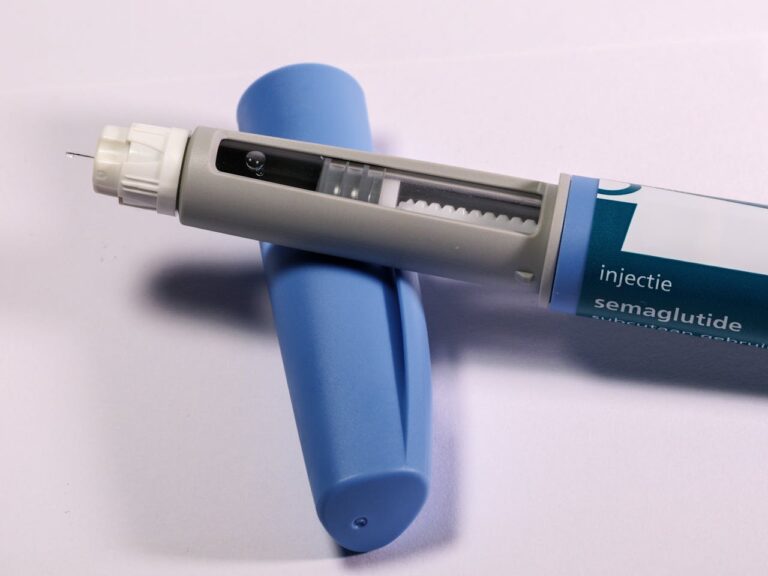Write Us: hello@ali5.org
10 Signs Your Body Is Stressed (Even If You Don’t Feel Stressed)
Think you're fine? Your body might say otherwise. Discover 10 surprising signs your body is stressed, before burnout hits. Recognize and manage hidden stress the smart way.

Most people associate stress with feeling overwhelmed, anxious, or mentally drained. But what if you don’t feel any of that, and yet your body is waving red flags?
Here’s what often gets overlooked: stress doesn’t always show up as panic or sleepless nights. Sometimes it creeps in quietly, showing up in places you wouldn’t expect, your skin, your appetite, your memory. That’s why it’s possible to be physically stressed without even realizing your mind is in overdrive.
Let’s break down 10 subtle signs your body is stressed, even if you think you’re fine.
1. Your Digestion Is Off for No Obvious Reason
If your stomach’s acting up, bloating, constipation, diarrhea, or acid reflux, and there’s no food change to blame, stress might be messing with your gut.
The gut and brain are deeply connected. In fact, your gut has its own nervous system (the enteric nervous system), and stress can throw that entire system out of sync. So if your usual meals suddenly feel like a war on your belly, don’t overlook stress as a possible cause.
2. You’re Tired All the Time (But Still Can’t Sleep Well)
Chronic stress keeps your nervous system stuck in fight-or-flight mode, which can wreck your natural sleep rhythms. You might feel tired all day, then wired and restless at night. That’s because your cortisol levels, the hormone that regulates alertness, are all out of balance.
So if you’re crashing mid-morning, surviving on caffeine, and tossing in bed at night, stress might be silently hijacking your rest.
3. You’re More Forgetful or Distracted Than Usual
Find yourself rereading the same sentence five times? Walked into a room and forgot why. Mental fog, forgetfulness, and a drop in focus are all signs your brain’s bandwidth is maxed out.
Stress demands a lot of your cognitive resources. Your brain becomes hyper-focused on survival, and that leaves little energy for memory, decision-making, or deep thinking.
4. Your Muscles Always Feel Tight or Achy
Tension headaches. A sore neck. A tight jaw. If you feel like your body is clenched 24/7, there’s a good chance stress is the culprit.
Even if you don’t realize it, your body responds to stress by bracing, tightening muscles, clenching your jaw, or hunching your shoulders. Over time, this turns into chronic pain and stiffness that doesn’t go away with normal stretching.
5. You’re Breaking Out (Even if You’re Not a Teenager)
Skin is another place where stress shows up. Acne, redness, dryness, and other skin flare-ups can all be traced back to chronic stress messing with your hormones.
When you’re under stress, your body produces more cortisol, which boosts oil production and inflammation, two big drivers of adult acne. Add in disrupted sleep and poor nutrition from stress, and your skin takes a visible hit.
6. You Crave Sugar, Salt, or Junk Food Constantly
Emotional eating isn’t just a joke; it’s a real stress response. When your body is under stress, it craves fast energy, which usually comes in the form of carbs, sugar, and salty snacks.
If your usual balanced meals aren’t cutting it and you find yourself reaching for chips or cookies “just to feel okay,” your body might be trying to self-soothe through food.
7. You Get Sick More Often
Stress can suppress your immune system, making it easier for viruses and bacteria to take over. If you’re catching colds more frequently than usual, or small things take longer to heal, your body might be telling you it’s overwhelmed.
Long-term stress weakens the immune response, making you more vulnerable to infections and slower recovery.
8. Your Heart Feels Like It’s Racing… Even When You’re Still
Palpitations. A fluttering chest. Feeling your heartbeat when you’re just sitting. These are all signs that your nervous system is stuck in fight-or-flight mode.
While it’s smart to rule out any heart condition with a doctor, unexplained heart palpitations or a racing pulse can often be traced back to unacknowledged anxiety or stress.
9. Your Libido Has Tanked
When stress hormones spike, your sex hormones often take a nosedive. This is especially true with chronic stress; your body basically decides reproduction is not a priority during a crisis.
If your interest in intimacy has plummeted without any clear cause, stress could be behind the scenes, dialing everything down.
10. You Feel Numb or Emotionally Disconnected
Here’s one that surprises people: sometimes the body deals with stress by shutting off emotionally. Instead of feeling anxious or angry, you just… feel nothing. That’s called emotional numbness.
It’s a survival mechanism. If your system is overloaded, the brain may tune everything out just to protect you. But the disconnection, like feeling detached from people or going through the motions, can be a huge sign that something’s off under the surface.
So, What Should You Do?
If several of these signs hit home, your body’s not betraying you. It’s trying to get your attention.
Here’s where to start:
-
Breathe on purpose. Not just shallow breaths—try box breathing or slow exhales to calm your nervous system.
-
Move your body. Doesn’t have to be a workout. Walk, stretch, or dance in your kitchen; movement helps release stored tension.
-
Cut the noise. Take 10–15 minutes a day away from screens, news, or chatter. Let your brain breathe.
-
Name the stress. Journaling or talking to someone about what’s going on (even if it feels small) helps get it out of your body.
-
Sleep like it matters. Wind down without your phone. Darken your room. Get serious about rest.
Final Thought: Don’t Wait for a Breakdown
The tricky thing about stress is that it can build slowly and quietly. Your body keeps score, even if your mind keeps pushing forward.
If you’re seeing these signs pop up, take it as a nudge, not a punishment. Stress is part of life, but letting it simmer unchecked? That’s a recipe for burnout, illness, and disconnection.
Start paying attention now. Your body will thank you later.







